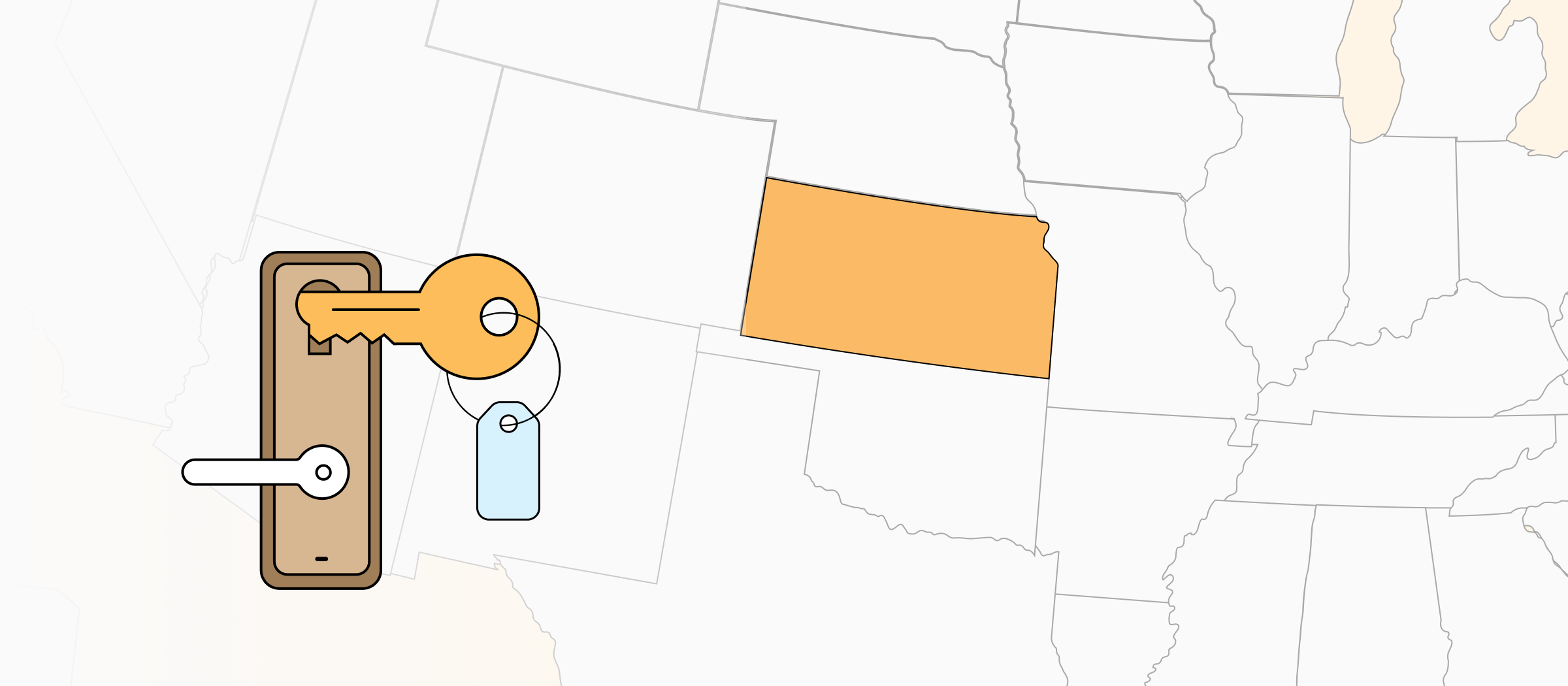| Legal Reasons for Entry |
|
| Notice Requirement |
|
| Penalties for Illegal Entry |
|
Does a Landlord Have the Right To Enter a Rental Property in Kansas?
In Kansas, the landlord has a right to enter a rental property for the following reasons:
- Inspecting the property.
- Improvements (including decorations).
- Maintenance and repairs.
- Showing the property.
- Emergencies.
Can a Landlord Enter Without Permission in Kansas?
Kansas landlords can legally enter a rental property without permission in emergencies, where life or property are substantially at risk.
Can a Landlord Enter Without the Tenant Present in Kansas?
Kansas landlords can legally enter a rental property without the tenant present.
Can a Landlord Show a House While Occupied in Kansas?
Kansas landlords can show an occupied house. The renter can’t unreasonably refuse.
How Often Can Landlords Conduct Routine Inspections in Kansas?
Kansas landlords have no specific limit on how often they can enter for inspections. The landlord isn’t allowed to enter unreasonably often, but what’s reasonable gets decided case by case.
How Much Notice Does a Landlord Need To Provide in Kansas?
Kansas landlords must provide reasonable notice before entering, except in emergencies. What’s reasonable depends on all the relevant circumstances, case by case. As a general rule, a minimum of 24 hours is reasonable notice unless there’s a specific reason for a lesser amount.
Can a Landlord Enter Without Notice in Kansas?
A landlord can enter without notice in Kansas, but only if there’s an emergency.
How Can Landlords Notify Tenants of an Intention To Enter in Kansas?
Kansas landlords can notify tenants of an intention to enter verbally or in writing, as long as the notice effectively informs the tenant regarding the time and purpose of entry.
Can a Tenant Refuse Entry to a Landlord in Kansas?
Kansas tenants can refuse entry to a landlord at any time other than emergencies. However, the landlord does have the right to enter with proper notice at reasonable times for specific purposes. If the tenant refuses entry unreasonably, the landlord might evict.
What Happens If the Tenant Illegally Refuses Entry to the Landlord in Kansas?
Kansas landlords can take any of the following actions if a tenant illegally refuses entry:
- Get a court order to force access.
- Cancel the rental agreement and evict.
- Recover cost of any actual damages.
Can a Tenant Change the Locks Without Permission in Kansas?
Kansas tenants can change locks without permission if the lease doesn’t say otherwise. Note that the landlord still has a right to enter for specific reasons, so it’s recommended that tenants provide copies of current keys.
What Can a Tenant Do If the Landlord Enters Illegally in Kansas?
Kansas tenants can do any of the following things if a landlord enters illegally, enters in an unreasonable way, or demands entry in a harassing way:
- Get a court order to ban the landlord from entering.
- Cancel the rental agreement.
- Recover cost of any actual damages.
Sources
- 1 Kan. Stat. Ann. § 58-2557 (2021)
-
“(a) The landlord shall have the right to enter the dwelling unit at reasonable hours, after reasonable notice to the tenant, in order to inspect the premises, make necessary or agreed repairs, decorations, alterations or improvements, supply necessary or agreed services, or exhibit the dwelling unit to prospective or actual purchasers, mortgagees, tenants, workmen or contractors.
“(b) The landlord may enter the dwelling unit without consent of the tenant in case of an extreme hazard involving the potential loss of life or severe property damage.
“(c) The landlord shall not abuse the right of access or use it to harass the tenant.”
Source Link - 2 Kan. Stat. Ann. § 58-2571(a) (2021)
-
“If the tenant refuses to allow lawful access to the dwelling unit, the landlord may obtain injunctive relief to compel access, or may terminate the rental agreement. In either case, the landlord may recover actual damages.”
Source Link - 3 Kan. Stat. Ann. § 58-2571(b) (2021)
-
“If the landlord makes an unlawful entry, or a lawful entry in an unreasonable manner, or makes repeated demands for entry otherwise lawful but which have the effect of unreasonably harassing the tenant, the tenant may obtain injunctive relief to prevent the recurrence of the conduct, or may terminate the rental agreement. In either case, the tenant may recover actual damages.”
Source Link

